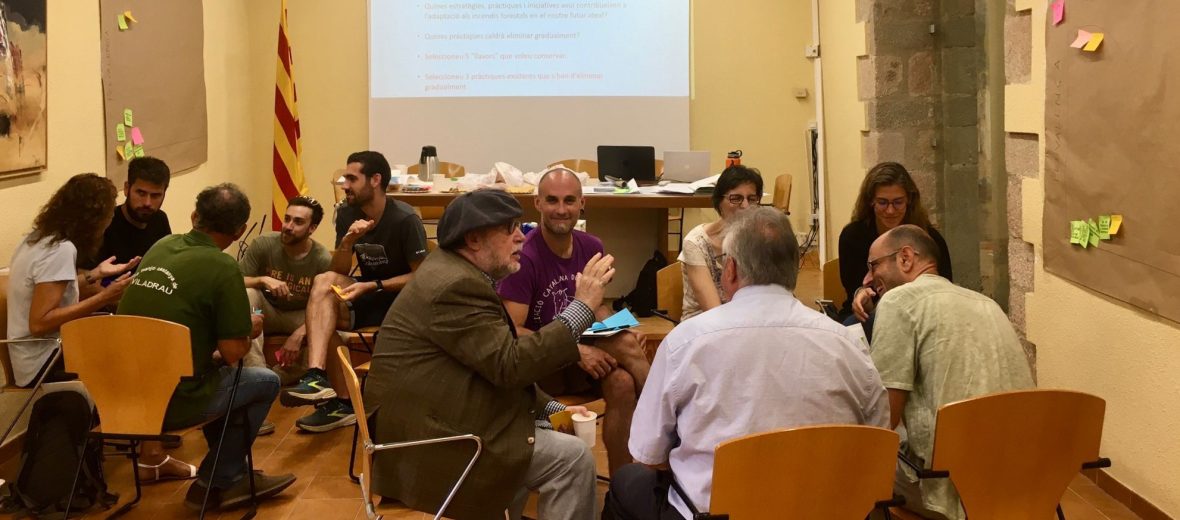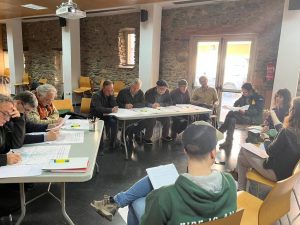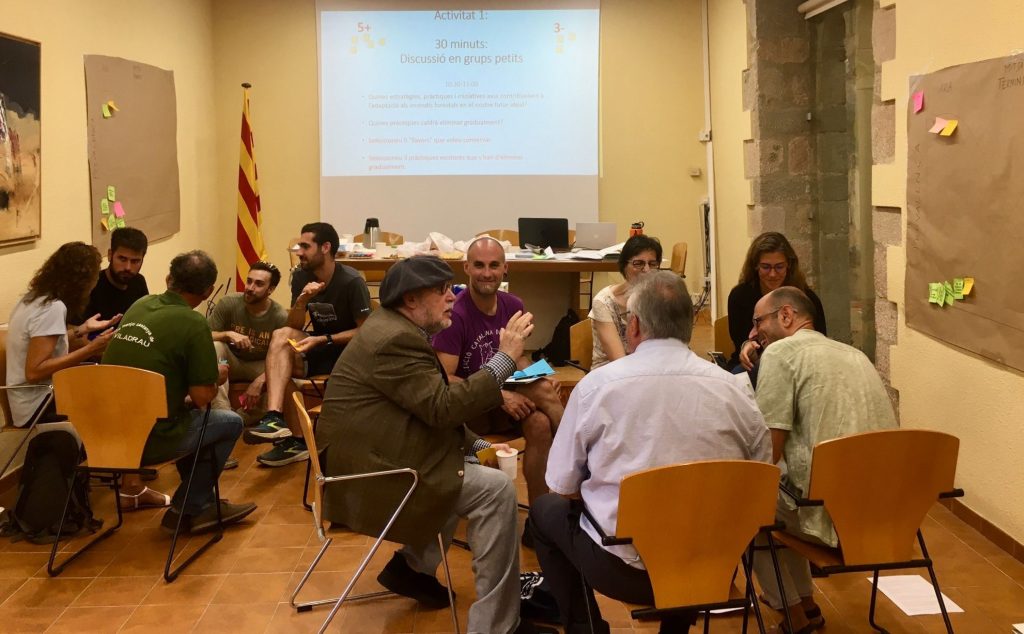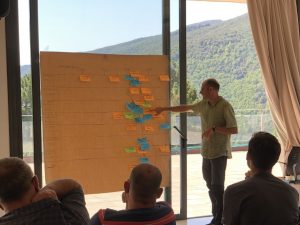
Blog post by Kathleen Uyttewaal
On the research article with the same title. See full article, and a factsheet sumarising the research, showing the implications on wildfire management and giving recommendations to policymakers and emergency responders in English and Catalan
···
Humans and their knowledge systems are as diverse as the landscapes we inhabit. In an era marked by drastic global and climate change, especially with changing wildfire regimes, it is essential to utilise every tool at our disposal. Engaging with local landscape-level knowledge can play a crucial role in better stewarding changing ecosystems and cultures through these uncertain times.
Background
In Mediterranean Europe, as in many parts of the world, local knowledge systems in agriculture and forestry have often been undervalued in the pursuit of “progress” marked by industrialisation and global market expansion. These systems, however, hold adaptive qualities refined over centuries, offering cultural and spiritual significance and a complex understanding of ecosystem dynamics at a local level. These characteristics are vital for adapting to climate change, yet these knowledge systems are at risk of disappearing altogether. Efforts to revive and adapt these systems to current contexts are necessary, as they serve multiple social and ecological purposes.
Research participants analysing adaptation pathways and ranking their preferences, March 2023. Sant Celoni, Spain.
Main Findings
This research focused on leveraging local ecological knowledge in the Montseny-Tordera area of Catalonia (Spain) to reduce wildfire risk. Using innovative co-productive methods, the study explores past, present, and future possibilities for adapting to fire in the landscape.
Our methods were developed in collaboration with the Pau Costa Foundation and numerous local actors in land stewardship, wildfire risk planning, traditional agriculture, and forestry, among others. Dozens of actors participated in interviews and workshops, co-creating timelines of important drivers of change in the territory, envisioning an ideal fire-resilient future, and developing pathways to achieve this vision. Through such collaborative efforts, local knowledge can be revived and effectively contribute to creating fire-resilient landscapes.
We found that despite the decline of local knowledge in recent decades, it still remains valuable for creating pathways to more fire-resilient futures. From the participants’ perspectives, local knowledge can be sustained through planning and administrative changes, but especially through social, educational, and economic initiatives. While some initiatives can be easily implemented locally (such as through land-based education initiatives), other actions require coordination at regional and international levels (such as energy transitions away from fossil fuels and implementing sustainable forest management objectives). This shows that bottom-up strategies from land stewards can lead the way in creating fire-resilient landscapes, while also remaining connected to global discourses of sustainability transitions.
The study highlighted the importance of including diverse perspectives and the capacity to envision changes in the landscape. The co-productive methods allowed participants to understand system dynamics and acknowledge radical landscape changes, while also thinking creatively and positively about future scenarios. Local ecological knowledge is seen as a key aspect of both the past and the future of the territory: it is a dynamic system that can embrace innovations and transformation.
Research participants constructing adaptation pathways using the Three Horizons framework, September 2022. Sant Celoni, Spain.
Implications
Collaborations across sectors and scales are essential to keep local knowledge alive, pursue sustainable development, and reduce wildfire risk. Co-productive research like this study allowed diverse actors to find common points of interest and learn from one another. These kinds of processes provide a critical step toward informing local policy and wider community action for mutual goals in wildfire resilience and sustainable development. This study demonstrates how reviving local knowledge can contribute significantly to wildfire resilience and offers methods that are broadly applicable to many communities.
Research participants describing timelines of significant changes in the territory, July 2022. Montseny, Spain.
Further Directions
Economic and political power imbalances are evident in the territory, which was a limitation in our participant selection process. Facilitated inclusion proved helpful in our study, but further institutional support is needed for longer-term action. This includes larger research-action teams, longer funding cycles, and explicit connections with local governance to help institutionalise some of these proposed actions.
Future investigations could aim to translate some of these action points into policy. Additionally, including more diverse profiles of people would ensure a broader social, economic and political representation. The study was conducted by researchers from Catalonia (Spain), Wageningen (Netherlands), and Christchurch (Aotearoa New Zealand), demonstrating its relevance in multiple areas of the world.





Leave a Reply